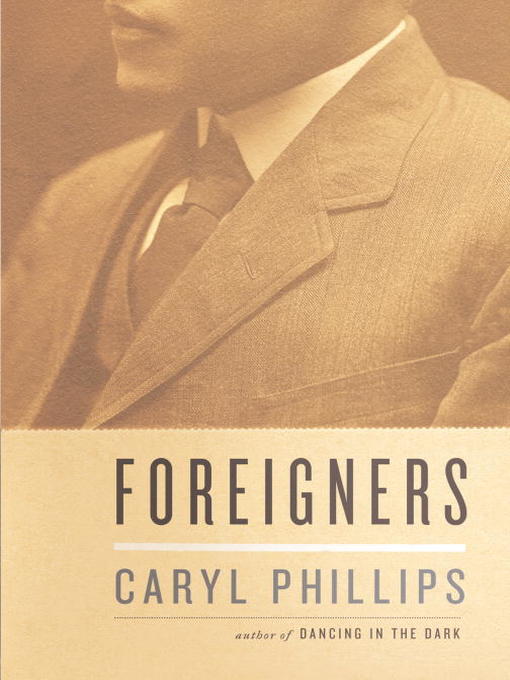
Foreigners
Vintage International
کتاب های مرتبط
- اطلاعات
- نقد و بررسی
- دیدگاه کاربران
نقد و بررسی

September 10, 2007
Signature
Reviewed by
Kate Christensen
Along with interest and admiration, I read parts of Caryl Phillips’s new book, Foreigners
, with, I confess, a mixture of bemused perplexity and thwarted expectations, wondering, what is this guy up to here? The rather stodgy historical passages coexist somewhat uneasily with the more fluid and lyrical fictionalized accounts. The three sections rub up against each other with a fierce but not quite cohesive energy. But in the end, the book is a bleakly ironic examination of what it means to be Other—historically and socially—through the stories of three very different black men in England.
The first section, “Doctor Johnson’s Watch,” is narrated by a late–18th-century journalist who sets out to write a piece for a gentleman’s magazine about Francis Barber, the Jamaican boy who was “given” in the early 1750s to Dr. Samuel Johnson, of the famous Dictionary
. Dr. Johnson raised the “negro” as his ward until his death; he gave him his freedom and a generous pension, which Barber squandered. At the end of the narrative, Barber, lying on the verge of death in a squalid pauper’s hospital, offers poignant insight into the nature of freedom and otherness, insight that the journalist, despite good intentions, may not be prepared to receive.
The second section, “Made in Wales,” is narrated in a hard-boiled third person that traces the rise and fall of Randy Turpin, the mixed-race boxer who beat Sugar Ray Leonard in 1951 to become, briefly, middleweight champion of the world, then fell, inevitably, the narrative suggests, into hapless debt and ruin. The third, final, most riveting and beautifully written section, “Northern Lights,” is told by a chorus of voices who cobble together the mysterious life and death of David Oluwale, a 20th-century version of Bartleby, a stowaway from Nigeria who washes up in Leeds in 1949 and ends his life stubbornly homeless, willfully persecuted and in 1969, drowned.
Interestingly, Phillips goes into none of these three black men’s consciousnesses or psyches. The reader stands some distance away from them with the narrators; except for Barber’s piercing, frank lament, we don’t get any direct emotional information from any of them. This narrative strategy is essential to the book’s intent, as is, I suspect, the uneasiness it provoked in me along the way. Phillips gets at real-life complexities in a visceral, nondidactic way: there are no victims or heroes here. I finished the book hearing Melville’s “Ah humanity!” echoing back through its pages.
Kate Christensen’s fourth novel,
The Great Man , was published last month by Doubleday.

Starred review from September 1, 2007
In each of his somberly beautiful and lacerating books, Phillips, a virtuoso, prizewinning novelist with a biographers avidity for fact, tells the stories of individuals caught up in the African diaspora, and ponders the question of how one retains a sense of self under the annihilating onslaught of racism. In this elegiac triptypch, he reclaims the lives of three black men in England, deciphering the toxic social chemistry that first gave each man hope, and then destroyed him. Francis Barber, brought to England from Jamaica at age 10, became Dr. Johnsons most trusted companion during the great literary genius wretched last days, only to fall into an abyss of poverty and prejudice. Randolph Turpin, a mixed-race Englishman, astonished the world in July 1951 by winning a match against Sugar Ray Robinson, but Britains first black champion boxer lost his bout with a hostile world. David Oluwale, a bright and ambitious Nigerian teenager, stowed away on a ship to England, intent on becoming an engineer. Instead he became the target of racist and sadistic policemen. A lone freedom fighter, he stood up to his attackers, who murdered him in 1969. As each elegantly restrained yet finely detailed tragic tale portrays a cruelly and unjustly condemned man and reveals hidden facets of English history, Phillips brilliantly realized and indelible novel of remembrance poses an unspoken yet inevitable question, have things changed for foreigners of color?(Reprinted with permission of Booklist, copyright 2007, American Library Association.)

























دیدگاه کاربران